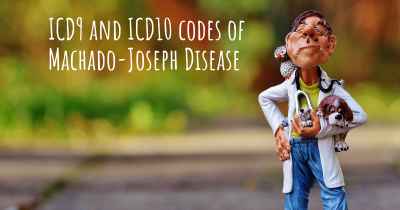How is Machado-Joseph Disease diagnosed?
See how Machado-Joseph Disease is diagnosed. Which specialists are essential to meet, what tests are needed and other useful information for the diagnosis of Machado-Joseph Disease

Machado-Joseph Disease (MJD), also known as Spinocerebellar Ataxia Type 3, is a rare genetic disorder that affects the central nervous system. It is characterized by progressive degeneration of certain regions of the brain, leading to a variety of symptoms including movement abnormalities, muscle weakness, and impaired coordination.
Diagnosing Machado-Joseph Disease can be challenging due to its variable presentation and similarity to other neurological conditions. However, there are several key steps and tests involved in the diagnostic process:
1. Clinical Evaluation:
The initial step in diagnosing MJD involves a thorough clinical evaluation by a neurologist or a movement disorder specialist. The doctor will review the patient's medical history, assess their symptoms, and perform a physical examination. They will look for specific signs such as gait abnormalities, muscle wasting, and abnormal eye movements that are characteristic of MJD.
2. Genetic Testing:
Genetic testing is the most definitive method to diagnose Machado-Joseph Disease. It involves analyzing the patient's DNA to identify the presence of a mutation in the ATXN3 gene, which is responsible for causing MJD. This test can be performed using a blood sample or other tissue samples. The results can confirm the diagnosis and determine if the patient has inherited the mutated gene from an affected parent.
3. Neuroimaging:
Neuroimaging techniques such as magnetic resonance imaging (MRI) may be used to assess the brain structure and identify any abnormalities. MRI scans can reveal atrophy (shrinkage) of certain brain regions, particularly the cerebellum and brainstem, which are commonly affected in MJD. These findings, along with the clinical symptoms, can support the diagnosis.
4. Electrophysiological Studies:
Electrophysiological studies can help evaluate the function of nerves and muscles in individuals suspected of having MJD. These tests include electromyography (EMG) and nerve conduction studies. EMG involves inserting small needles into specific muscles to record their electrical activity, while nerve conduction studies measure the speed and strength of nerve signals. Abnormalities in these tests can provide additional evidence of MJD.
5. Differential Diagnosis:
Since MJD shares similarities with other movement disorders and ataxias, it is crucial to rule out alternative diagnoses. The doctor may order additional tests, such as blood tests, to exclude other genetic or acquired conditions that can present with similar symptoms.
6. Family History:
Obtaining a detailed family history is essential in diagnosing MJD. This disease is inherited in an autosomal dominant manner, meaning that an affected individual has a 50% chance of passing the mutated gene to each of their children. Therefore, identifying other family members with MJD or related symptoms can support the diagnosis.
It is important to note that the diagnosis of Machado-Joseph Disease is typically made by combining the results of multiple tests and assessments. The process may require the expertise of various specialists, including neurologists, geneticists, and neuroimaging experts.
Early and accurate diagnosis of MJD is crucial for appropriate management and genetic counseling. While there is currently no cure for the disease, symptomatic treatment and supportive care can help alleviate some of the symptoms and improve the quality of life for affected individuals.








